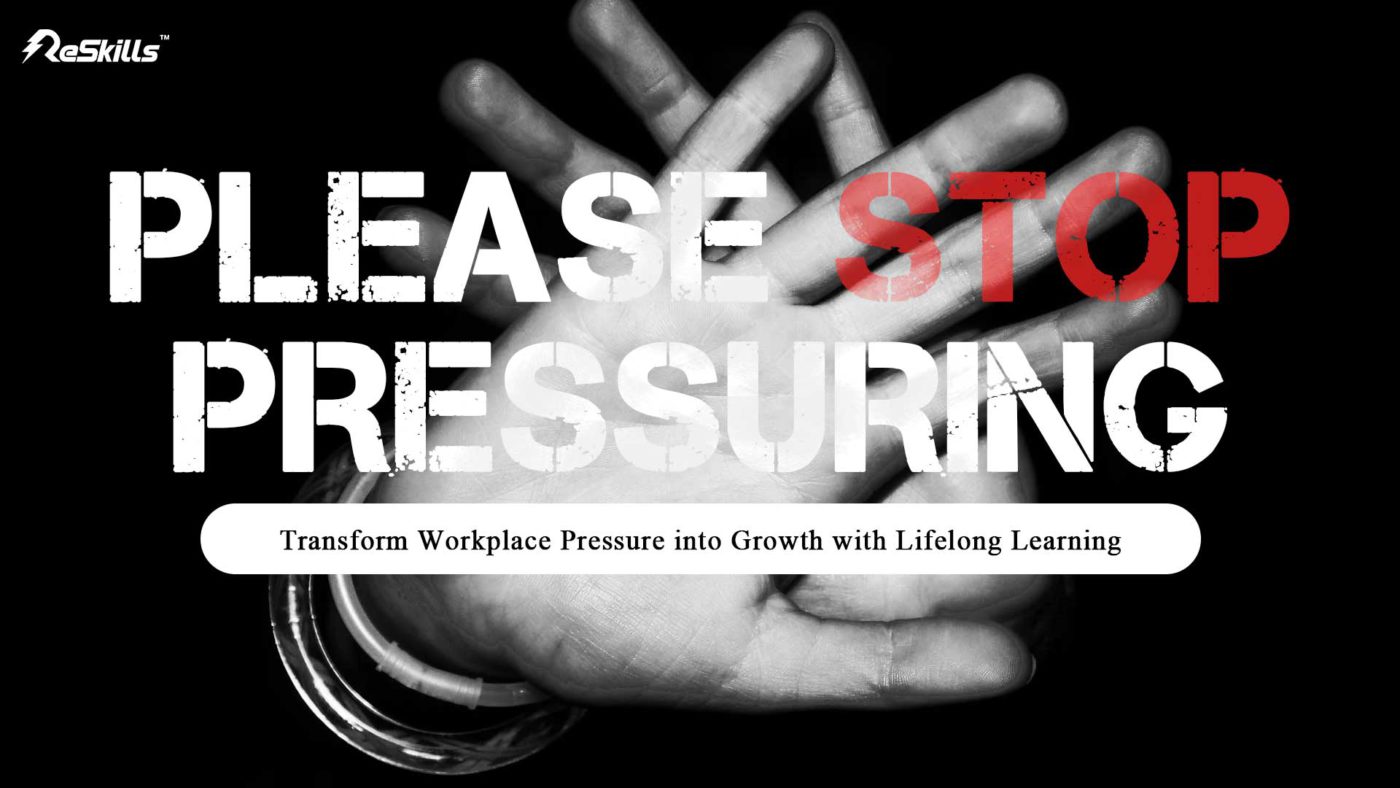In today’s fast-paced work environment, especially for younger generations like Gen Z, workplace pressure and burnout are increasingly prevalent issues. According to recent New Straits Times news, more than 60% of Gen Z workers feel overwhelmed by the demands of modern workplaces, leading to frequent job changes and dissatisfaction. This societal issue extends beyond just the younger generation, affecting businesses, productivity, and the workforce at large.
But what can we, as a part of society, do to address this? And how does lifelong learning fit into the solution? In this article, we’ll explore the societal impact of workplace pressure, what individuals and businesses can do to reduce it, and how embracing a mindset of lifelong learning can be a powerful tool in overcoming these challenges.
Understanding the Root Causes of Workplace Pressure
Workplace pressure is nothing new, but for Gen Z, it is amplified by several factors:
Technology Overload: Gen Z is the first true digital-native generation, having grown up with smartphones, social media, and constant connectivity. While technology brings convenience, it also creates an “always-on” culture where boundaries between work and personal life blur. The expectation to respond quickly and perform continuously can lead to burnout.

Economic and Job Market Uncertainty: In an unpredictable economy, younger workers often feel the need to constantly prove themselves. They may fear job instability, which leads to taking on more tasks and responsibilities than they can reasonably manage.
Unrealistic Expectations: Gen Z faces immense pressure from both external and internal sources to succeed early in their careers. This pressure is magnified by social media, where success stories of peers are displayed without showing the struggles behind them, creating an illusion of effortless achievement.
Lack of Supportive Work Environments: Many workplaces fail to prioritize mental health and employee well-being. When companies are more focused on output than on the overall health of their teams, employees can feel like they are disposable and overworked.
The Impact of Workplace Pressure on Society
The ripple effects of this overwhelming pressure extend beyond individual workers. High turnover rates contribute to labor shortages, leading to inefficiencies within companies. This, in turn, impacts the broader economy as productivity drops and businesses spend more resources on recruiting and training new employees.
Moreover, the mental health of an entire generation is at risk. Increased stress, anxiety, and burnout can lead to long-term mental health conditions, potentially contributing to larger societal problems like increased healthcare costs and a decrease in overall societal well-being.

The Role of Lifelong Learning in Overcoming Workplace Pressure
While workplace pressure might feel inevitable, one proactive approach to addressing it is by embracing lifelong learning. Lifelong learning refers to the continuous, voluntary, and self-motivated pursuit of knowledge, whether for personal or professional reasons. It plays a key role in adapting to new challenges and reducing the stress associated with feeling unprepared or under-skilled.
1. Lifelong Learning Builds Resilience
The fast-changing nature of technology and work environments means that skills can become outdated quickly. This can cause anxiety for workers who feel they need to constantly stay ahead. By committing to lifelong learning, individuals can stay adaptable and resilient, confidently tackling new challenges as they arise.
For example, if you are continuously learning, upskilling, and expanding your knowledge base, you’ll be more equipped to take on new responsibilities or shifts in the job market without feeling overwhelmed. The ability to handle change reduces stress and increases job satisfaction.
2. Developing Emotional Intelligence and Stress Management Skills
Lifelong learning isn’t just about hard skills; it’s also about cultivating soft skills like emotional intelligence, time management, and stress reduction techniques. These skills are invaluable in managing workplace pressure.
Courses or resources focused on emotional intelligence can help individuals navigate complex social environments at work, enabling them to handle conflicts, manage stress, and maintain better work relationships. Learning these coping strategies helps create a sense of control and balance, which is crucial in a high-pressure environment.
3. Creating New Opportunities for Career Growth
Continuous learning helps you stay competitive in the job market, which reduces the fear of job instability. Whether you’re learning new technologies, management strategies, or even pursuing certifications in different fields, these additional qualifications can open up career growth opportunities that might have previously seemed out of reach.
With more qualifications, workers have more options and bargaining power, allowing them to negotiate for better work conditions or seek out jobs with healthier work environments. This is particularly important for Gen Z, who, according to studies, often feel trapped in roles that don’t match their aspirations.
4. Promoting a Healthier Work Culture
Businesses that encourage lifelong learning create a more supportive environment for their employees. Offering access to training, workshops, and educational resources can empower workers to take charge of their own development, reducing the pressure to constantly perform while feeling underqualified.
Companies can also benefit from fostering a culture of continuous improvement. Employees who feel they are growing and learning are less likely to suffer from burnout and more likely to remain engaged and satisfied in their roles.
Practical Steps Toward Lifelong Learning
If you’re ready to embrace lifelong learning as a tool to combat workplace pressure, here are some practical steps you can take:
- Start Small: Begin by identifying areas where you feel underqualified or overwhelmed. Seek out online courses, workshops, or even free resources that can help you build the skills you need.
- Create a Learning Plan: Set aside time each week for learning. Whether it’s reading industry articles, attending webinars, or completing online courses, making learning a part of your routine can significantly reduce stress in the long run.
- Seek Employer Support: Talk to your employer about opportunities for professional development. Many companies offer resources like training programs, mentorship, or access to educational platforms. If they don’t, advocate for the importance of such initiatives.
- Join Learning Communities: Engage with others who are also committed to lifelong learning. This could be through professional networks, online communities, or local workshops. Having a supportive learning network can enhance your motivation and make learning more enjoyable.
How ReSkills Lifelong Learning Platform Can Help You Manage Workplace Pressure

ReSkills is an affordable and accessible global online learning platform that offers a wealth of resources designed to foster personal and professional growth. With its wide variety of daily live classes, in-demand learning videos, and micro-certifications, ReSkills empowers individuals to continuously upskill and reskill. For Gen Z workers facing workplace pressure, ReSkills provides a flexible, user-friendly way to stay competitive and reduce stress by learning new skills at their own pace, building confidence, and adapting to ever-changing job market demands.
Conclusion
Workplace pressure and burnout are significant challenges for the younger generation, but they are not insurmountable. By embracing lifelong learning, individuals can reduce stress, increase their resilience, and create new opportunities for growth. At the same time, businesses and society at large need to recognize the importance of creating supportive environments that prioritize continuous learning and mental well-being.
Lifelong learning is not just about staying competitive in the job market; it’s about cultivating a mindset that helps you adapt, grow, and thrive in the face of challenges. And in a world that’s constantly changing, that’s more important than ever.




